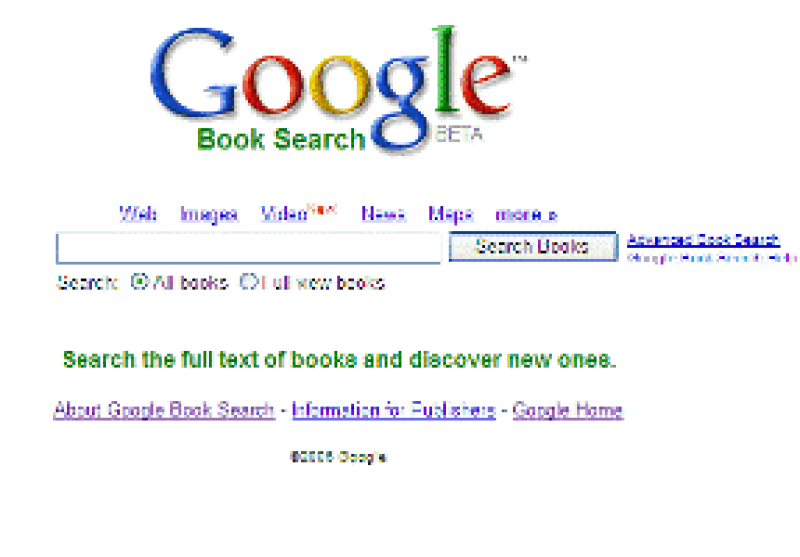
In the latest twist in a seven-year legal battle over Google’s efforts to create the world’s largest online library, US authors have responded to Google’s request to dismiss their suit challenging the Google Books project by demanding as much as $2 billion from the search engine.
In its motion, which became publicly available on Friday, the Author’s Guild asked for damages of $750 for each copyrighted book scanned in as part of the Google Books project. Google asked a judge to dismiss the class-action suit last week, claiming Google Books is like a digital card catalogue system and amounts to fair use.
The book-scanning project, which was announced in 2004, allows users to conduct a full-text search of millions of books online, in some cases returning snippets which show the context of the search. Google says the project will benefit the public and may actually help authors by generating interest in their work. In a statement, a company spokesperson told Managing IP: “We believe Google Books constitutes fair use by allowing users to identify interesting books and find ways to borrow or buy those books, much like a card catalogue for the digital age.”
But Scott Cleland, a former deputy United States coordinator for communication and information policy and a research analyst who has spent 10 years studying Google, disagrees. He has testified before Congress three times about the company and is the author of the book Search & Destroy: Why You Can't Trust Google Inc. Below, Cleland gives his own opinions about the case and its ramifications for authors.
What made you become interested in Google?

It was really the antitrust issues. I have been following Google for a decade. Five years ago, when Google wanted to buy [online advertising provider] DoubleClick, I testified before the Senate that if you allow this, you will tip Google to a monopoly. [The US antitrust regulator, the FTC, ultimately approved the $3.1 billion deal in December 2007.] In my testimony, I said that information is power. Lord Acton said: “Power tends to corrupt, and absolute power corrupts absolutely”. We have given Google absolute power over the world’s information and I think that’s a big problem.
What do you make of Google’s comparison of Google Books to a library card catalogue, and do you think the project constitutes fair use?
Google doesn’t like patent law, it doesn’t like copyright law and it doesn’t like trade mark law, so it wants to change all of them. Google Books is an assault on copyright law for books. With patents there’s a huge fight over Android. I am offended by the total disrespect of property rights that Google engages in. What you are seeing in this Google Books document [Google’s recent motion for summary judgment] is very creative lawyering.
What do you see as the possible long-term financial and legal effects on authors and publishers if the judgment is favourable to Google?
The loss of book sales. As a researcher, I use many books for my research. There are people who buy books who don’t read the whole thing – they just need a few pages for research purposes.
Google is saying that derivative digital uses of a book don’t belong to the creator of the work. All of Google’s legal shticks are understandably self-serving, but what makes Google unique is how they push the envelope on every aspect of IP and how aggressive and unabashedly they push it.
Google won’t comment on how Google Books will make money – in what ways could it be commercially valuable to Google?
The enormous value of Google Books is to give them an unbeatable search indexing advantage. It’s a body of information that’s extremely valuable to Google. Books more than anything in the world are the most detailed and edited form of language. The more data it can crunch, the smarter its analysis.
It could enable them to do better translation. About half of of Google’s revenues come from overseas, so Google Translate is a huge competitive advantage that it has and what makes that superior to anything else is Google Books. Google Translate is the most obvious of the benefits but there are all sorts of imaginative derivative uses it could have.
That’s great invention – as long as you obey the law and you’re rewarding the person who created that value according to the law.
What do you think Google’s chances of success are in this lawsuit?
Look back at what Judge Chin said when he rejected the settlement. He says they are basically trying to obtain an anti-competitive advantage via massive copyright infringement. I believe Judge Chin implicitly thinks Google was involved in an infringement.
Google declined to comment on Cleland’s comments beyond the arguments in their brief. A group of research libraries is also supporting Google.
Last month Managing IP published its list of the most influential people in IP. Google’s Larry Page took the top spot. You can find out why in the July/August issue of the magazine.










